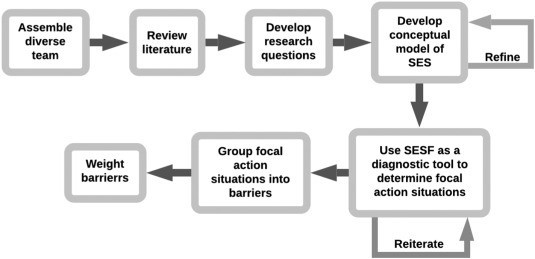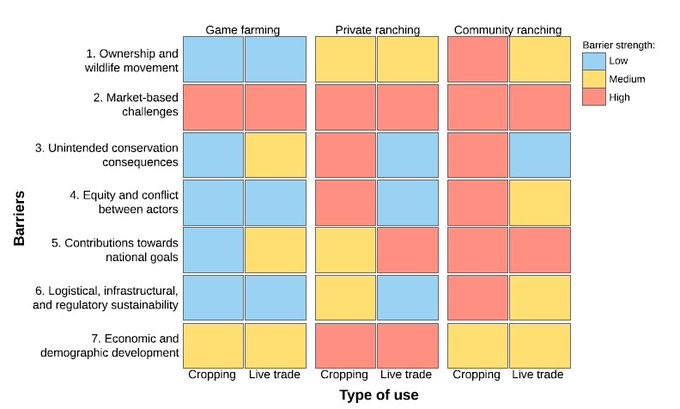News
Ensuring conservation policy incorporates social and ecological complexities: lessons from Kenya and game meat
WildCRU’s Peter Tyrrell writes from Kenya
Two years ago, the Kenyan Ministry of Tourism and Wildlife called for public comment on a potential policy change. The government was considering the reintroduction of the trade and sale of meat and other products from wildlife (trophy hunting was not considered). Following these calls for public participation, we assembled a small yet diverse team from the African Conservation Centre, University of Cambridge, Kenya Wildlife Conservancies Association, WildCRU (Peter Tyrrell) and the South Rift Association of Landowners to provide input for government consideration. We quickly pulled together a diverse set of experience and knowledge to explore the potential barriers to this policy change. Our original report submitted to the Ministry task force can be found here.

Figure 1. Methodology used by the diverse team members
We believed that our results and insights on methodology where of interest to a much broader audience than laid out in our original report, and have now published details of our work in Biological Conservation.
Our methodology (Figure 1) used Nobel Prize winner Elinor Ostrom’s Social-Ecological Systems Framework to delve into the complexities of this potential policy change. To meet the Ministry’s stated objectives we found that the proposed game ranching model needs greater considerations about equity, large-scale investment in effective monitoring systems, new regulations, training, market research and development, and considerations around the devolved ownership of wildlife. The smaller, more intensive, game farming model had fewer barriers to implementation but fails to meet broader ecological goals.

We found Ostrom’s Social-Ecological Systems Framework (SESF) to be an adaptable yet structured approach that was useful in understanding interactions between social-ecological systems, through complex processes. We hope others can learn from our experiences and approach.
Brehony, P., Tyrrell, P., Kamanga, J., Waruingi, L., & Kaelo, D. (2020). Incorporating social-ecological complexities into conservation policy. Biological Conservation, 248, 108697.






